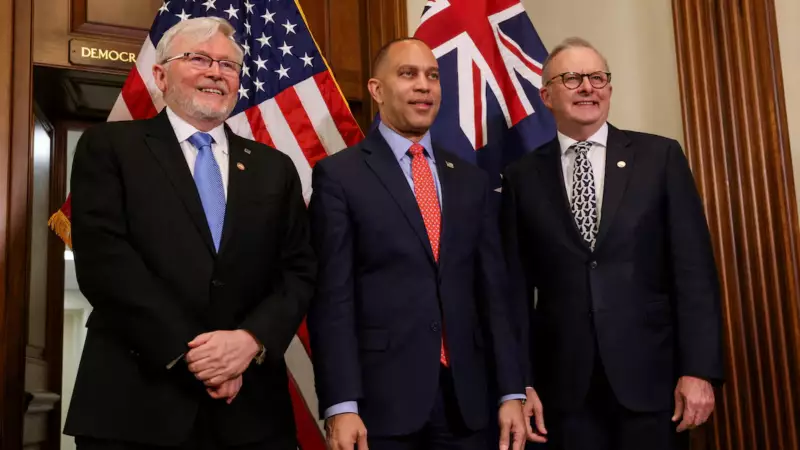
In a stunning revelation that has sent shockwaves through diplomatic circles, former US President Donald Trump reportedly told Australia's ambassador to the United States, Kevin Rudd, "I don't like you" during what should have been a routine meeting.
The Controversial Encounter
According to sources familiar with the matter, the extraordinary exchange occurred when Ambassador Rudd visited Trump at his Mar-a-Lago estate in Florida. The meeting, intended to maintain diplomatic channels between the two allied nations, took an unexpectedly personal turn when Trump made his blunt admission.
This confrontation highlights the growing tension between Trump and Australian officials, particularly given Rudd's previous public criticisms of the former president. The Australian diplomat had once described Trump's behavior as "beneath the dignity of a world leader" and questioned his mental stability.
Political Fallout and Reactions
Australian Prime Minister Anthony Albanese addressed the situation with careful diplomacy, acknowledging the challenges of international relations while emphasizing Australia's commitment to its partnership with the United States. "We work with whoever is in government," Albanese stated, underscoring the importance of the US-Australia alliance regardless of political leadership changes.
The incident raises significant concerns about how a potential second Trump administration might approach relationships with key allies. Australia has long been considered one of America's closest partners in the Asia-Pacific region, with shared security interests through agreements like AUKUS.
Broader Implications for International Diplomacy
This personal confrontation between a world leader and a senior diplomat represents a departure from traditional diplomatic norms, where professional relationships typically transcend personal feelings. The situation has prompted discussions among foreign policy experts about the evolving nature of international relations in an era of increasingly personal politics.
As the United States approaches another presidential election, allied nations are closely watching how they might need to navigate relationships with potential administrations. The Australia-US relationship, particularly regarding security cooperation in the Pacific, remains crucial for regional stability.
Both governments have maintained official silence on the specific details of the conversation, but the leaked account has already begun influencing perceptions of how Trump might approach diplomacy with traditional allies if he returns to power.





